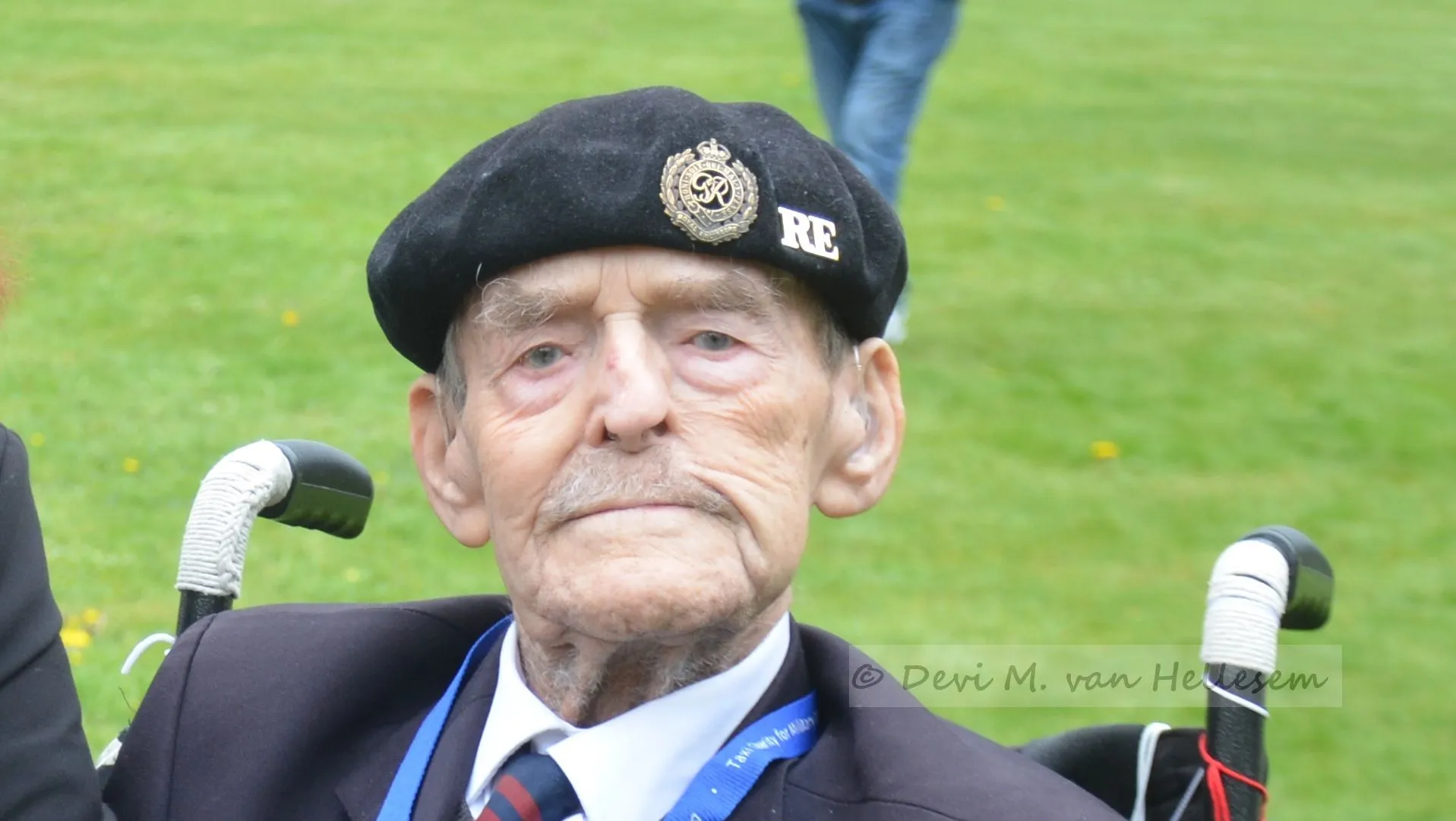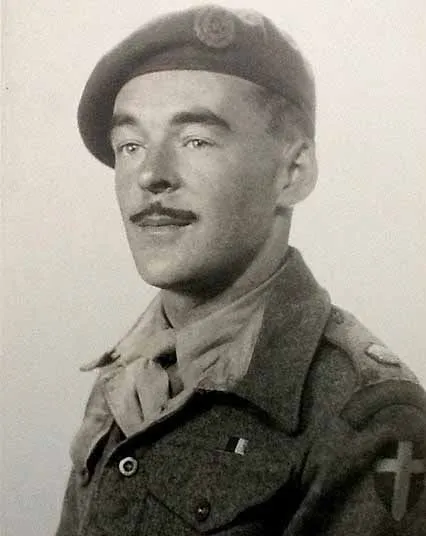WW2 veteran Major Edwin (Ted) Hunt passed away

On Saturday July 9th World War II veteran Major Edwin (Ted) Hunt passed away at the age of 102 at his hometown in England. Although not a Market Garden veteran, everyone in the area of Arnhem knew the cheerful, sympathetic Ted .
On 5 May he was in Wageningen at the Liberation parade where, instead of riding along, this year he sat on the podium with the prominent people and experienced the parade in a completely different way. He thought it was great and enjoyed himself, as always here in the Netherlands.
Lucky or unfortunate
The unfortunate Ted fell last week and broke his hip, the doctors decided not to operate on him due to his heart problems and his cancer. Though Ted wouldn't have called himself unfortunate.
Ted reported to the Royal Engineers on Thursday 12 October 1939, but was judged too young. The next day, he reapplied, but with an additional year of age, on Friday the 13th and he was later sent to Norway. Had he signed up on the 12th, he would have been sent to Dunkirk, in another company that fell there. After his mother's fear, because he was accepted on Friday the 13th, this date turned out to be just his luck.
The war really started for Ted when he arrived in Norway in April 1940 with the 49th Infantry Division's Royal Engineers, also known as the Polar Bears. At 23 he was a sergeant major and captain by the time of the D-Day landings on the French beaches of Normandy. He was given command of 15 ' Rhino ferries
' that transported vehicles to the beaches. Ted had to get his ferries to Gold Beach. The first two hours were chaotic and Ted was hit by a shrapnel in his forehead. Right in the middle. Any lower and he would have been blind. A little higher and he was killed. He was lucky a second time.
The Netherlands
The Royal Engineers provide (technical) support to the British Armed Forces: the Royal Navy, The British Army and the Royal Air Force (think of combat support and construction(clearing minefields, blowing up or building bridges, building defences and encampments)) and have an advisory role. Commanders who face military questions such as: how do we get across that river, could use their help.
That issue was also the case in the Netherlands. After the landings on D-Day, the Allied army advanced to the north and thus the Netherlands, where the country is divided by the river Meuse . It had to be crossed and that wasn't easy. Ted's help was enlisted, he'd been a Thames Waterman since he was 15 and on or around the water, he was probably at his best.
Together with the Dutch reserve-lieutenant and engineer Constant Lambrechtsen van Ritthem, with whom he quickly developed a close friendship, he went on dangerous missions to find the best place to cross the Meuse. Especially dangerous for Constant, who would be seen as a terrorist if discovered and shot to dead. Ted, who would then be captured as a prisoner of war, had great respect for that.
The longest floating bailey bridge
The two eventually designed the longest floating bailey bridge
of the Second World War in the spring of 1945 and would supervise the construction. More than a kilometer long (1225m), over the river Meuse between Oeffelt (Province of Brabant) and Gennep (Province of Limburg). Crucial for the further course of the war. Finally, the quarter of a million Allies who were in the Netherlands for the Rhineland Offensive
were able to free the land between the Meuse and Rhine from the occupiers and push on to Germany.
When two monuments in honour of Constant Lambrechtsen van Ritthem and Ted himself were unveiled on May 11th this year, one on each bank, Ted was there. Modest as he was, he gave all the credit to Constant. But the fact that both monuments are there now and people in the villages Gennep and Oeffelt now know which important step in the war was made there, that honour goes to Ted. Even Constant's family wouldn't have known what he'd accomplished in the war without Ted. (text continues after video, mostly in Dutch)
Last war action
In the Netherlands, Ted would see the war for the last time. Once in London, during the preparations for the war in Asia, he 'lost' a bet with someone else by tossing a coin about who would get two weeks of leave. When an officer came to say that one of them was going to Burma, Ted, who was on leave, could stay at home while his comrade left. Where he would later die in a plane crash. A fate that was bestowed on Ted but through the bet, he escaped it.
Lucky again and so he reached the incredible age of 102.
After VE Day, Ted was promoted to Major. Accompanied by the Taxi Charity for Military Veterans, he visited many places that remained so important to him, but also to his comrades. Whether it was in the Netherlands, France, Germany or Great Britain itself, he was there.
Lately, he was cared for in a veterans' home where he reminisced the war with other veterans. In March this year he celebrated his 102nd birthday there. Cheerful as always, he sang along with the Not Forgotten's Swingtime Sweethearts with Vera Lynn's We'll meet again.
Rest in peace Major Hunt.



